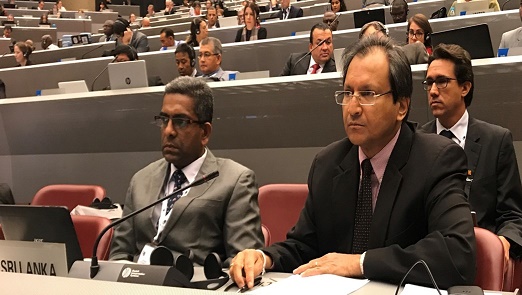NDIMUH B. SHANCHO
Some 183 countries representatives are converging on Geneva-Switzerland for the Convention on International Trade in Endangered Species of Wild Fauna and Flora (CITES) to strengthen wildlife trade rules for fisheries, timber, exotic pets, elephants and more.

Meeting for the 18th Conference of Parties, the Conference, which started last Saturday, August 17 to end on August 28, 2019, will culminate in the adoption decisions and resolutions that will expand and further strengthen the global wildlife trade.
In a press release published on CITES’ website recently, CITES Secretary-General Ivonne Higuero, said “this year’s conference will focus on strengthening existing rules and standards while extending the benefits of the CITES regime to additional plants and animals threatened by human activity”.
The CITES boss underscored the importance of rules and policies in natural resources conservation and sustainable development. “Clear and enforceable rules based on sound science and effective policies are vital for protecting natural wealth and achieving the 2030 Sustainable Development Goals that have been adopted by the world’s governments. Because it is science-based, implementation-oriented and pragmatic, CITES plays an essential role in advancing international efforts to conserve and sustainably use our natural capital,” she said.
The new wildlife trade rules to be considered at the 18th meeting of the Conference of the Parties of CITES (CoP18), according to the press release, covers “ an array of mammals, birds, reptiles, amphibians, trees, and other plants”.
Parties at this conference will also be evaluating some 20 proposals “inspired by concern over the growing appetite of the exotic pet trade for charismatic amphibians and reptiles”







